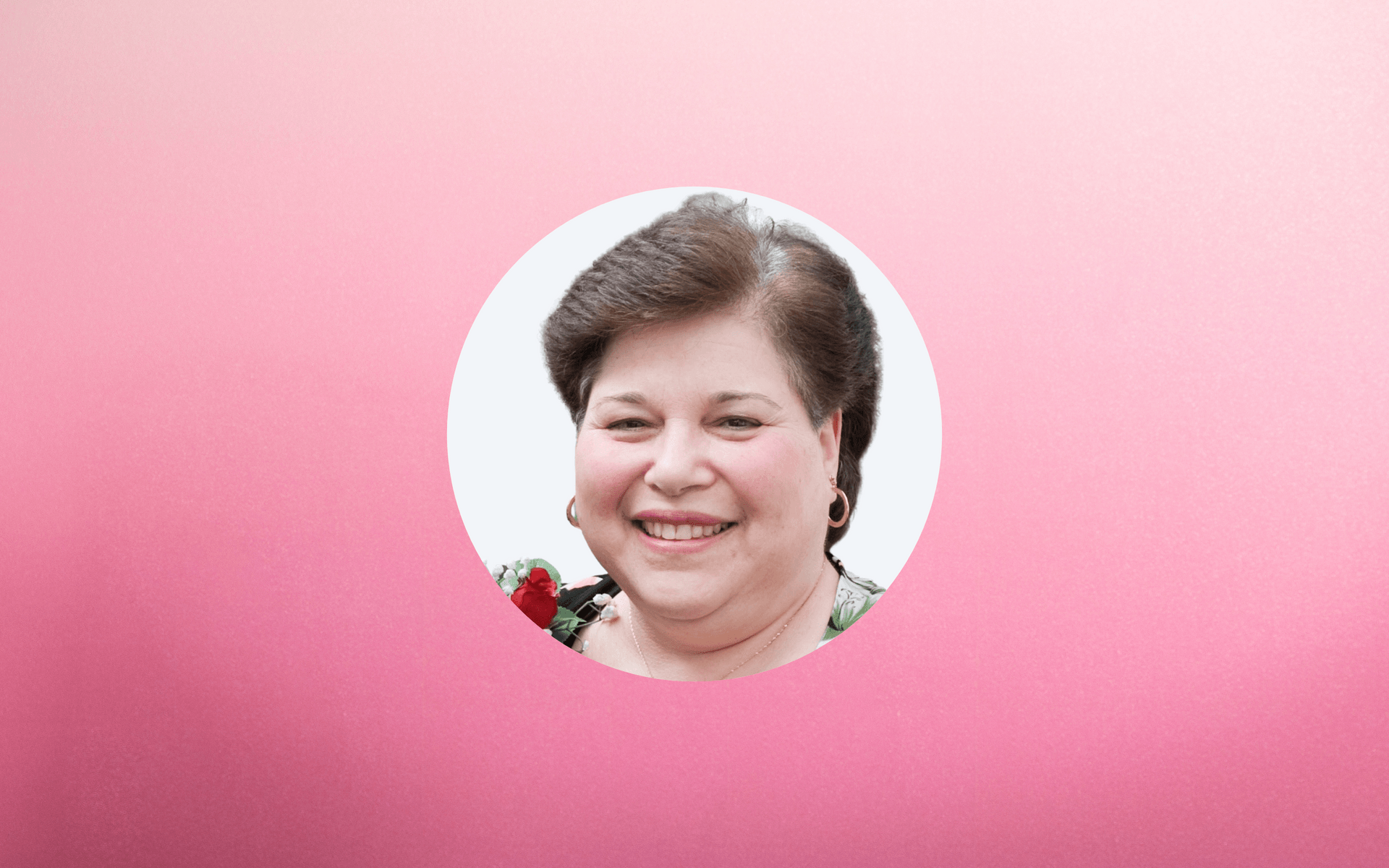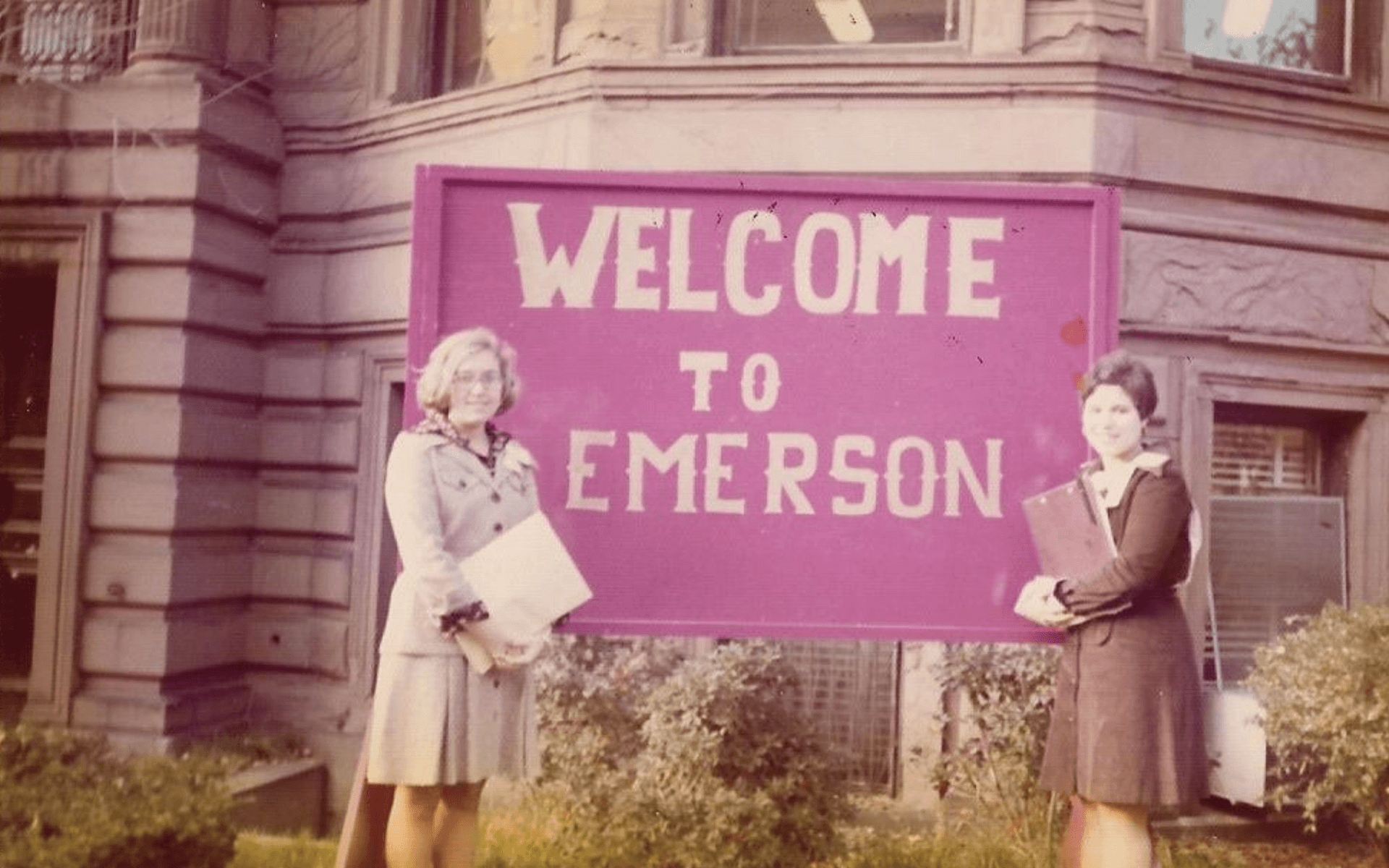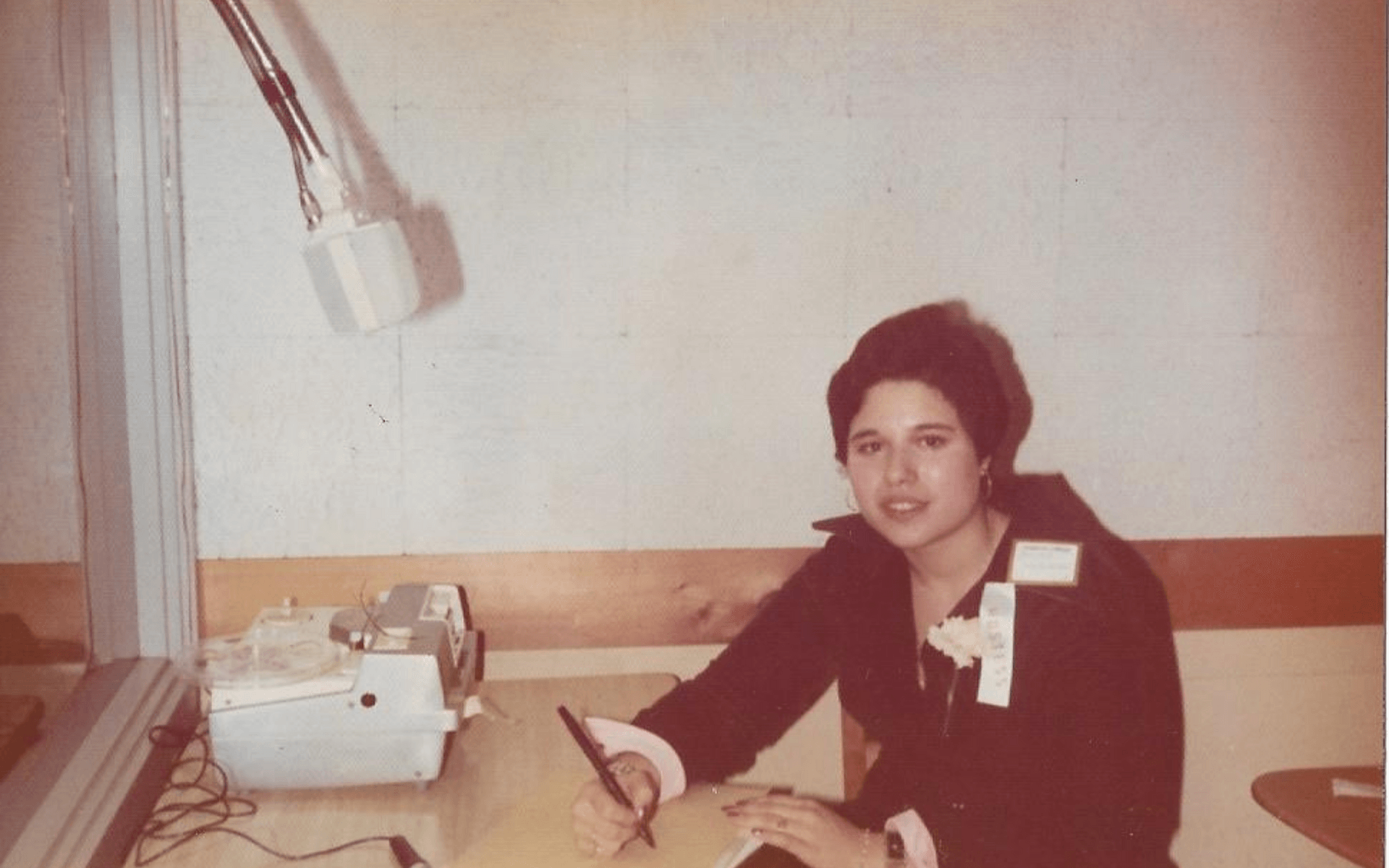Partner Spotlight
From Student to Faculty: How One Instructor Is Giving Back to Her Alma Mater Through the Speech@Emerson Program
Written by Bannon Puckett on Apr 26, 2021
Related content: Graduate Programs, Digital Education

For Fern (Schleiderer) Fellman, speech language pathology is personal. Growing up, her sister was nonverbal due to a rare genetic disorder called Mucolipidosis Type IV (ML4). “That’s why I got so invested in the field,” says Fern. “I wanted to help people communicate better.”
After receiving a bachelor’s in Communication Sciences and Disorders from Emerson College and a master’s in Communication Disorders from Hofstra University, Fern went on to practice in a variety of settings: from public elementary schools to state universities to her own alma mater, where she now serves as an instructor in the 2U-powered Speech@Emerson online master’s degree program.
At Emerson, Fern teaches an introductory online course called Clinical Methods 1 during students’ first semester of the Speech@Emerson program. “It covers the nuts and bolts of how to become a speech language pathologist,” she explains. “We cover lots of professional responsibilities, treatments, assessments, and professional writing.”
On the first day of class, Fern always asks students the same icebreaker question: What inspired you to pursue a career as a speech language pathologist? “It’s interesting,” she says. “About 30% of students are there for a personal reason. Some will say, ‘I have a brother who has autism.’ Others will say, ‘My grandfather had a stroke,’ or, ‘I used to go to speech therapy because I myself had an articulation disorder.’ Those experiences drive the students. They know the impact that speech language pathologists can have on someone’s life by improving their ability to communicate and making their needs known.”
Read on to learn more about Fern’s passion as a speech language pathologist (SLP)—and how Emerson’s partnership with 2U has helped her meet student needs in a constantly changing landscape.

What makes speech language pathology such an attractive profession?
There’s a niche for everyone within the field. You can work with children, you can work with adults, you can work in hospitals, you can work in preschools. There are so many different avenues to go down. Since the field is very flexible, you can also work in a variety of settings at the same time. For instance, you can be in a hospital setting three days a week and then have a private practice. There are so many opportunities for SLPs. It's an evolving field, too. When I went to school back in the day, we did not learn about dysphasia or swallowing disorders. Now that's a big deal—we save people's lives by helping them swallow safely.
What excites you about the speech language pathology field right now, in terms of current trends, research, innovations, and discoveries?
Advancements in digital technology are really exciting. Today, there are so many online resources available to SLPs either for free or for a low price. When I was going to school, you had to make your own therapy materials (i.e. flashcards) to use with clients. Now, the resources are there for you. Especially in this age of teletherapy, when many places are not doing in-person appointments, online materials are so helpful. My hope is that we don't leave these resources behind post-pandemic—that we bring them into the therapy rooms and use them with clients, so they can have digital materials to practice with at home. In the past, if you wanted a client to carry over skills or complete homework, you had to photocopy your clinic’s printed materials, which had specific images to target the client’s goals. Now those materials are available online. You can just send a URL for clients to access after they leave the session.
I’m also excited about the dynamic use of technology for augmentative and alternative communication devices (AAC). These are aided communication tools that assist individuals in expressing their thoughts and needs, ranging from low-tech picture boards to speech-generating devices that have a voice output for the user. These systems are constantly getting more sophisticated and user-friendly. If we can harness the power of technology and incorporate that into our therapy sessions, we’ll become better clinicians.
Speech@Emerson is highly rated. How is the program uniquely positioned to prepare students for successful careers as SLPs?
Speech@Emerson’s professionalism and care makes this the best program for aspiring SLPs. Our program is very rigorous and competency-based, and we support students so they can meet high expectations. It’s also very individualized and collaborative. Some people might assume that, because it's an online program, you don't have the ability to interact with others, but you really do. Through Zoom, there’s the opportunity to network, make close friends, and form professional relationships that you can rely on as you go out into the field and become a working SLP.
Emerson has an outstanding reputation as a valuable and viable program that turns out competent speech language pathologists. I want Speech@Emerson to continue sending students out into the world who are the best they can be.— Fern (Schleiderer) Fellman, Speech@Emerson Facilitator, Emerson College
How have you enjoyed teaching online through the Speech@Emerson program?
I love teaching online. I think it's the best! The fact that I don't have to travel to a school building is incredible. At another university position, I hated driving to campus when it was already dark out to teach night classes. At Emerson, I teach night classes that start at 6:30 p.m. and don’t even have to leave my house. That aspect of online education is really nice. Every facilitator I talk to loves teaching online. I think it's the wave of the future: a cost-effective and convenient option that allows students and instructors to juggle many different things.
We’ve moved beyond old-school teaching methods, where instructors used to stand in front of a classroom and lecture. That’s not how this generation of students learn. Look at elementary schools, for instance. In the past 15 to 20 years, students went away from sitting in rows and having a teacher at the front of the classroom to sitting in small clusters of desks. At the elementary school I used to work in, teachers got rid of desks altogether and sat students at bigger tables to create a more cooperative learning environment. At Speech@Emerson, the Zoom platform helps instructors emulate that collaborative style of learning. You’re able to put students in breakout rooms and have them learn from each other. Some of our students also have hands-on experience from out in the field, and they bring those experiences with them to teach others, myself included.
Speech@Emerson offers two weekend-long immersion experiences at the college’s Boston campus. What has your participation in the immersions been like?
It’s a really unique experience. I attended two on-ground immersion weekends before COVID-19 put us all online, and it was wonderful. You have this cohort of students that have seen each other in little boxes on their computer screens, and now you realize that they’re human beings with legs. That was always our joke: “You really do have legs!” Everyone gets to spend the entire weekend together, so lots of personal connections are made. If you do any program in isolation, motivation can be lacking. But if you do it with other people who have the same drive, that’s going to push you further and increase your motivation.
Throughout the immersion weekend, you also get to see students developing confidence. For example, there are many different labs in which the students demonstrate techniques that they’ve been discussing in the live sessions. It is in these labs that they realize how much they have learned.
The online immersion was fabulous, too. There were small groups and hands-on activities, along with time for individual questions. We put students in Zoom breakout rooms and they got to complete assessments together. During our upcoming online immersion, they’re even going to be doing virtual hearing screenings.
I also get to meet other facilitators during an immersion, which is very rewarding. You don't want to work in a bubble. It’s nice knowing there are other people I can reach out to if I'm having trouble teaching a specific concept. I can learn new approaches by asking: How can I become better?

As an Emerson College alum yourself, how does it feel to give back to your alma mater?
It's thrilling. I loved attending Emerson as an undergraduate. It was the place where I grew up. I have so many fond memories of my instructors—one of whom, Dr. Jacqueline Liebergott, went on to become the president of Emerson College. Looking back, I really learned most of my skills and found most of my passion at Emerson. I always say: Everything I learned was at Emerson. Being able to come back is so much fun. I love being able to say that I can help the college that helped me out all those years ago.
What legacy do you want to leave at the Speech@Emerson program?
Every day, I’m driven by the goal of being the best clinical instructor and facilitator that I can be. I want to help students be the best SLPs possible: instilling confidence, competence, and really strong critical thinking skills. It’s not about me—it’s all about the students. Emerson has an outstanding reputation as a valuable and viable program that turns out competent SLPs. I want Speech@Emerson to continue sending students out into the world who are the best they can be, and who represent the college well.
What advice would you give students interested in applying to the Speech@Emerson program?
Be ready to work and spend many hours honing your craft. It’s not an easy program, and a growth mindset is important. Be open to new experiences. Understand that you have to be a lifelong learner. Many students think they can gain the necessary skills and be done, but that’s not the case with speech language pathology. You have to continuously learn new technologies and keep up with current literature, putting time in even after you graduate to give clients the right service. To succeed in this field, you need to be interested, willing, and driven to spend time learning throughout your career.
Latest.
Learn more about us.
At 2U, we’re on a mission—to eliminate the back row in higher education and help universities thrive in the digital age. To learn more about who we are and what we do, follow the links below.